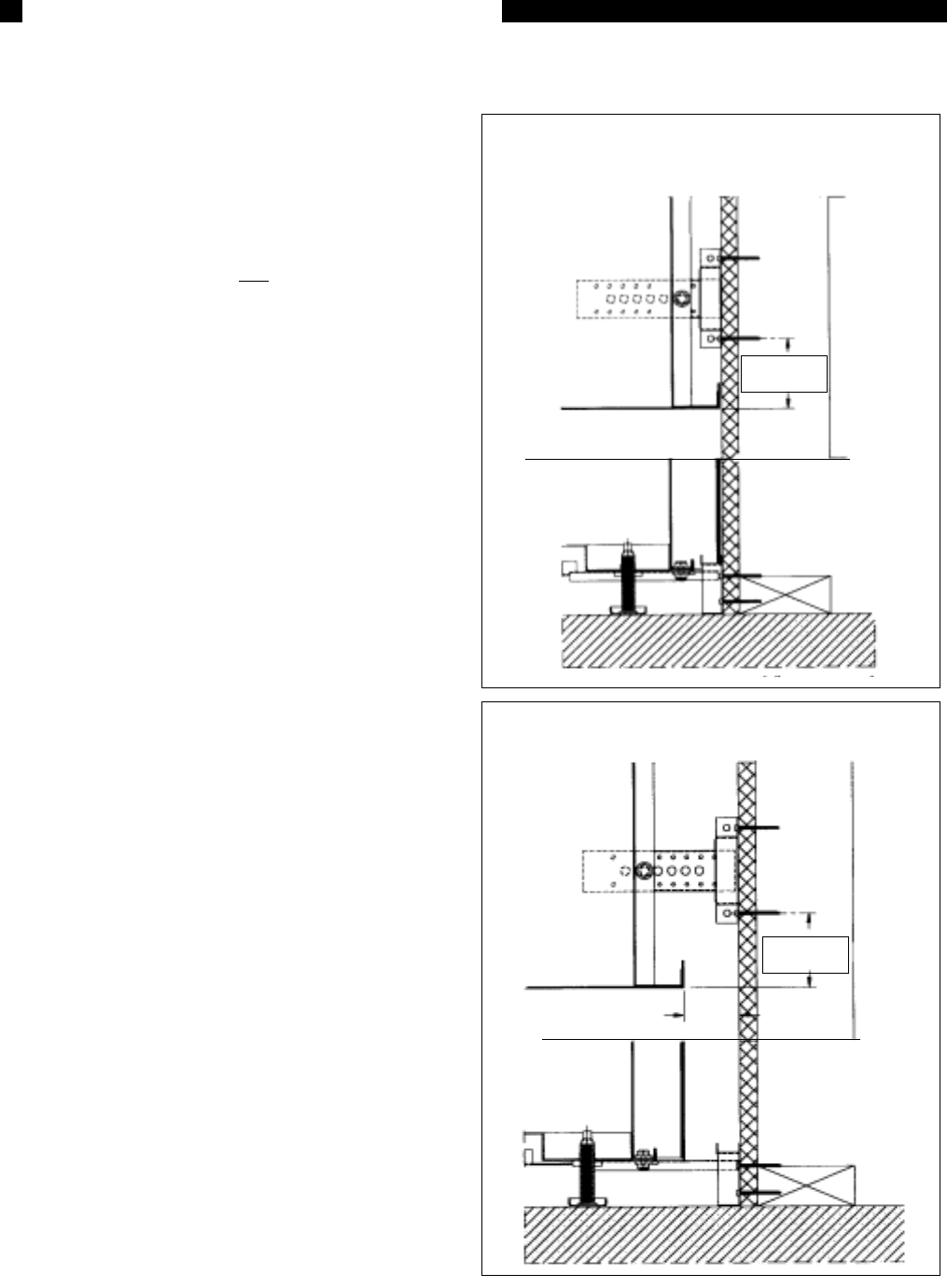
STEP 4: INSTALLING ANTI-TIP DEVICE
PRG304 AND PRG36 All-Gas Ranges (Figures 9, 10, 12a 12b and 13)
STEP A: Determine the best location for the
PRG Mounting Bracket. The bracket may be
mounted to the wall or floor behind the
range, offset from either the left or right side
wall by 2-3/4" for model PRG304 or
4-5/8" for Model PRG36.
- Locate the bracket on the side of the
range that will not interfere with the
gas supply line, electrical wiring,
conduit or any other item.
- Select either the rear wall or the floor
for mounting the bracket, based
upon which will provide the greatest
holding strength.
STEP B: Set the bracket on the floor and turn it
until it is oriented properly. The bracket should
be standing up on end. The set of mounting
flanges having one (1) hole per side should be
resting on the floor, and the other set of
mount
ing flanges having two (2) holes per side
should be positioned vertically facing the rear.
STEP C: Slide the bracket left or right to the
correct position for the model that you are
installing. The distance from the side wall to the
center line of the closest mounting hole is 2-3/4"
for model PRG304 or 4-5/8" for Model PRG36.
STEP D: If you plan to mount the bracket to the
rear wall, slide the bracket back until it is
positioned against the rear wall. If you plan to
mount the bracket to the floor, position the
bracket such that the center line of the mount-
ing holes in the horizontal bracket flanges are
7/16" in front of the rear edge of the range
side panel when the range is in its final in-
stalled position.
STEP E: With the bracket properly positioned,
use the bracket as a template and mark the
location of the selected mounting holes in
either the rear wall l (4 holes) or the floor (2
holes) with a pencil.
STEP F: Drill holes at the marked locations.
STEP G: Using the screws provided, securely
fasten the bracket to the rear wall (4 screws) or
floor (2 screws).
FIG. 12b PRG Wall Mount (Max 2" Clearance)
PLAN VIEW
FIG. 12a PRG36 Wall Mount (0" Clearance)
PRG304: 2-3/4"
PRG36: 4-5/8"
PRG304: 2-3/4"
PRG36: 4-5/8"
PLAN VIEW
SIDE VIEW
May Be Used On Either Left
or Right Side (Right Shown)
May Be Used On Either Left
or Right Side (Right Shown)
SIDE VIEW
Maxi-
mum
Up to 2"
Page 12
